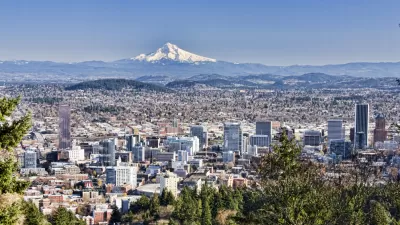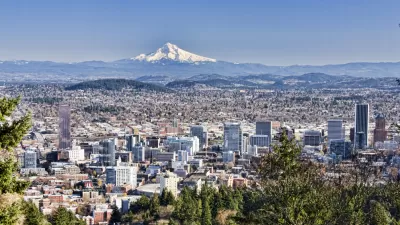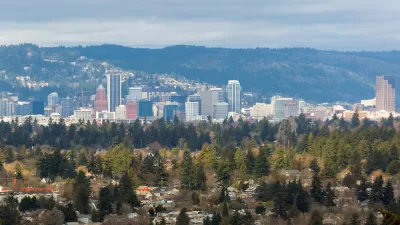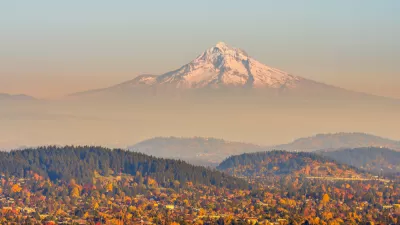A study of two cities at opposite ends of the urban spectrum demonstrate how density matters for a number of ecological services.

Rio de Janeiro is a tightly-packed city with large tracts of natural land surrounding it. Portland, Oregon intersperses many small parks throughout a sprawling urban landscape. A new study by a team of biology researchers finds that the Rio model sustains better natural services, including cleaning water and air, reducing noise, pest control, agriculture, carbon storage, and pollination. Denser cities with large adjoining parks also do a better job of mitigating the "heat island effect," a local temperature increase caused by the concentration of heat-absorbing metal and concrete.
The study finds, however, that less-dense cities with many small parks offer residents a better sense of well-being. As previously reported, there is evidence that walking in a natural setting is more beneficial to mental health than walking in an urban setting. Thus, "policymakers can improve dense cities' healthfulness, the researchers write, by adding some greenery in the form of sidewalk trees, green walls, and green roofs," Francie Diep writes.
Furthermore, Diep reports, "Moderate levels of development, like that of the suburbs, made natural lands lose their services at a disproportionately fast rate, compared to intense development."
FULL STORY: Why Denser Cities Are Better for People and the Environment

Maui's Vacation Rental Debate Turns Ugly
Verbal attacks, misinformation campaigns and fistfights plague a high-stakes debate to convert thousands of vacation rentals into long-term housing.

Planetizen Federal Action Tracker
A weekly monitor of how Trump’s orders and actions are impacting planners and planning in America.

In Urban Planning, AI Prompting Could be the New Design Thinking
Creativity has long been key to great urban design. What if we see AI as our new creative partner?

How Trump's HUD Budget Proposal Would Harm Homelessness Response
Experts say the change to the HUD budget would make it more difficult to identify people who are homeless and connect them with services, and to prevent homelessness.

The Vast Potential of the Right-of-Way
One writer argues that the space between two building faces is the most important element of the built environment.

Florida Seniors Face Rising Homelessness Risk
High housing costs are pushing more seniors, many of them on a fixed income, into homelessness.
Urban Design for Planners 1: Software Tools
This six-course series explores essential urban design concepts using open source software and equips planners with the tools they need to participate fully in the urban design process.
Planning for Universal Design
Learn the tools for implementing Universal Design in planning regulations.
Gallatin County Department of Planning & Community Development
Heyer Gruel & Associates PA
JM Goldson LLC
City of Camden Redevelopment Agency
City of Astoria
Transportation Research & Education Center (TREC) at Portland State University
Jefferson Parish Government
Camden Redevelopment Agency
City of Claremont





























